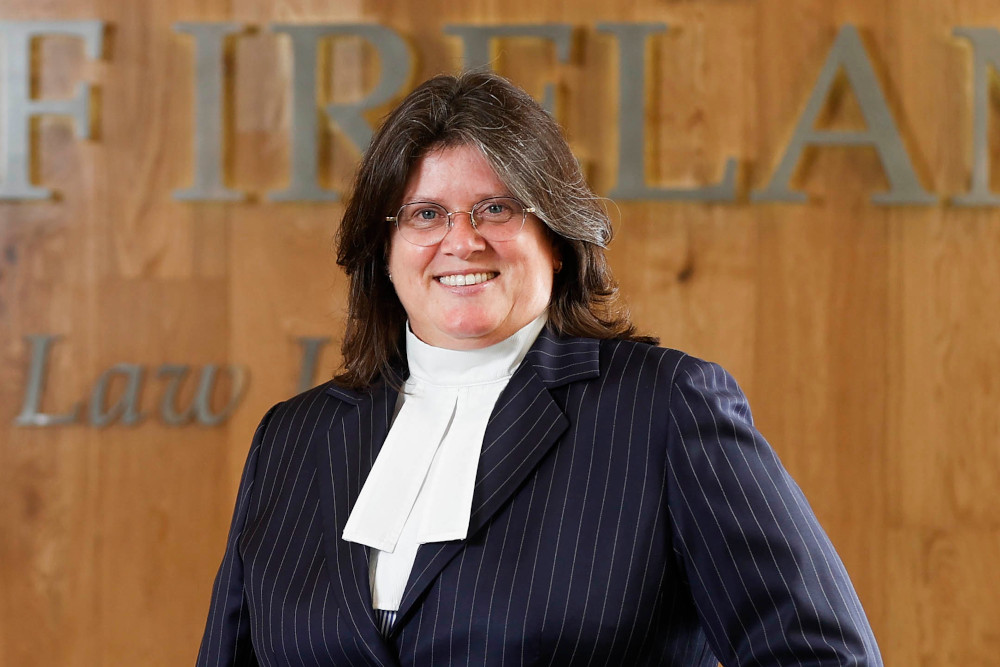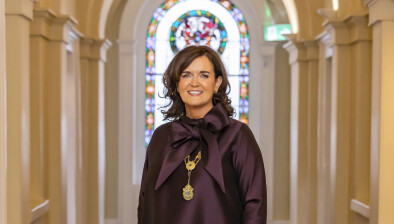Barristers owed average of €27,000 by solicitors

Maura McNally SC
Barristers are owed an average of €27,000 by solicitors and may require legislative change allowing them to sue for unpaid fees, a landmark report has said.
Published this morning, the independent report and strategic review completed by EY has been welcomed by Bar Council chairperson Maura McNally SC as “a necessary and important body of independent analysis, that should invigorate our strategic focus and priorities”.
The report makes 51 recommendations across a wide range of areas, of which 45 have been accepted by the Bar Council. Among the most controversial is the proposed introduction of a chambers-like business model, which has been rejected.
The Bar of Ireland launched an in-house fee recovery service in 2020, which has so far secured payment in 77 cases with a total value of €278,000. It currently has 182 outstanding cases representing a total of €1.3 million.
The EY report warns that the new service has had “limited success to date” and that more resources for the service – while welcome – would not address “the root cause of the problem, namely the innate and late culture of payment in the profession”.
It urges the Bar to “lobby the LSRA to examine the options for changing the law which prevents barristers from suing solicitors for non-payment of fees and which states that a barrister has no legal right to be paid his/her professional fees by his/her client”.
The Bar Council has said it will now commission a barrister or tax expert to further review the rules which prevent barristers from suing for their fees and examine what impact that could have, including possible tax and cashflow implications.
However, it has ruled out a more controversial proposal that barristers should be allowed to “form a ‘meitheal’ of members, comprising a mix of senior counsel, junior counsel and new entrants”, which EY believes could also improve payments.
“Based on our analysis and the feedback from surveys and consultations, ‘do nothing’ is not a credible option,” the report warns. “A change to the business model is warranted to sustain the profession into the future.”
It argues that barristers already “enter informal arrangements to work together on specific cases or for large research assignments”, and the ‘meitheal’ structure would place this on a more formal footing. It also says this would not be the same as a chamber as members would remain independent sole traders.
The report states: “In the ‘meitheal’, the practice manager will have responsibility for the collection of fees and with potentially, a closer relationship between the practice manager and the clients of the ‘meitheal’, this may lead to some acceleration in payments.”
The Bar Council has said it does not agree with EY and that the ‘meitheal’ structure would “create additional risks in terms of access to justice and have little impact in terms of addressing some of the core challenges that continue to affect the profession”.
It has unanimously rejected the recommendation as having “no apparent advantages … over and above the independent referral bar model that is already in existence”.
Commenting on the report, Ms McNally said: “This report was received by the Council in July 2021, following a comprehensive survey of our membership, staff and the legal sector. 16 deeper consultations were held with key stakeholders across the justice sector, as well as a survey of the general public.
“Like any industry and sector, the legal services sector is facing a degree of disruption. As a Council and a profession we need to be aware of the opportunities on the horizon and how the landscape we operate is constantly changing.
“The purpose of this report is to firstly understand the change, and then see where and what opportunities can be preserved and explored. I am happy to say that a number of the conclusions of the report are already being advanced. This is a necessary and important body of independent analysis, that should invigorate our strategic focus, priorities and our debates as to our future profession.”
Ciara Murphy, chief executive of the Bar, added: “This report and the process underpinning it have provided a useful opportunity for members, staff, and others to examine what our core concerns and priorities should, and consequently the degree of resourcing and urgency around each.
“The issues raised in the report have implications for how we deliver our services, the skillsets on our team and the opportunities to support growth in the profession. We look forward over the next three years, working with Council to advance the recommendations within this report.”












